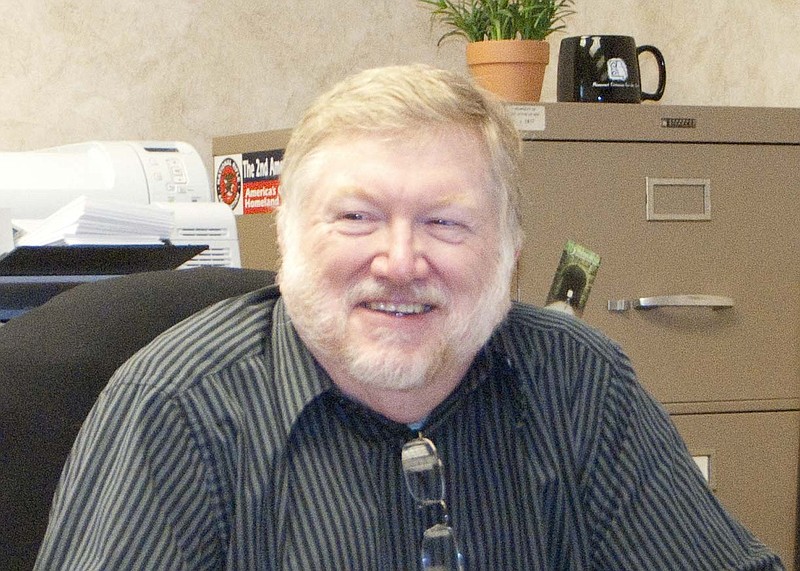Accumulating a bundle of knowledge and experience from brief time in the Army, local resident Steve Coller believes one of the most important lessons derived from his military service was that of loyalty.
His introduction to such lessons began shortly after his graduation from a St. Louis area high school in 1966, at which time he tried his hand at college.
"I attended Tarkio (College) for a year," Coller said, "but decided that I wasn't quite ready for school."
He began working at McDonnell-Douglas in St. Louis, but having lost his student deferment, and with a country in the heart of the Vietnam War, Coller realized that it was likely just a matter of time before he would be drafted.
"I figured if I enlisted, I'd at least have a chance to do what I wanted in the service," he said. "The spy movies like James Bond were popular at that time so I thought that a career in military intelligence might be interesting."
Regrettably, the intelligence career he desired was unavailable upon his enlistment, so the new recruit opted for an opening with the Army Security Agency (ASA).
Completing his boot camp at Fort Leonard Wood, Coller traveled to Fort Devens, Mass., where he received advanced training as a radio-teletype operator. As Coller recalled, "It was an intense course where I had to learn Morse code during a short period of time."
In August 1968, he received his first assignment at Arlington Hall Station, Va., serving in an administrative capacity handling background checks for individuals applying for ASA positions.
The following March, he chose to volunteer for service in Vietnam.
"I'd heard about everything that was going on with the war," he said, "and figured I'd go over myself and see what was actually going on."
Assigned to the headquarters for the 509th Radio Research Group, Coller and his fellow soldiers possessed Top Secret security clearances. The group's primary function was the collection of communications intelligence.
"We would intercept enemy radio traffic and triangulate to locate target locations," Coller said. "This information was then used to determine where to concentrate our ground forces or artillery strikes."
Serving one year overseas, Coller returned to Virginia and spent the next 16 months in an administrative support position at the ASA Electronic Warfare Study Group - an organization that explored various means of employing electronic warfare methodologies.
Coller received an early discharge in August 1971 due to an Armywide downsizing, and re-enrolled at Tarkio College. However, he postponed his education a second time to accept a security officer position at the St. Louis County Government Center.
Over the next several years, he remained in security and law enforcement work. In 1977, he moved to Mid-Missouri when he was hired as an officer with the Jefferson City Police Department - a position he remained in for 10 years.
Taking a break from his employment in 1987, Coller decided to finish his education.
"I wanted to finish the degree I had started back in 1966," he said.
Enrolling at the University of Missouri, he spent the next three years finishing his education, graduating in 1990 with a bachelor's in psychology.
Shortly after his graduation, the Division of Professional Registration hired him. In 2005, he became a legislative assistant at the state Capitol and now provides administrative support to state Rep. Rick Stream, R-Kirkwood, a veteran of the U.S. Navy.
With a sense of indebtedness for the lessons he received from the military, Coller explains that one lesson garnered from his time in the service can be an advantage in the civilian workforce as well.
"The military instills a sense of loyalty you often don't find in other professions - a focus on carrying out the mission you've been given while at the same time watching out for your buddy," he said.
"In some professions, loyalty isn't a priority, but those of us who have been exposed to it understand how important it can be in when you must work with others to accomplish a task."
Jeremy P. Amick is the public affairs officer for the Silver Star Families of America.

